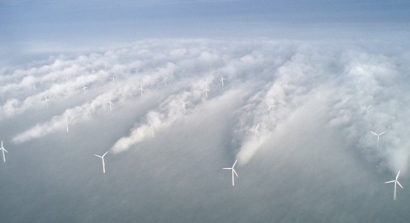
Optimizing control strategies to reduce wake effects will lower the levelized cost of energy by increasing the total wind energy yield and reducing fatigue, thus saving operational and maintenance costs. Additionally the introduction of control strategies can also increase availability and extend the lifetime of existing and future assets.
During the project different methods of control will be used to optimize power production for the whole wind farm. The turbine control will be altered by adjusting the blade angle of attack (pitch) and rotation of the nacelle (yaw).
Based on previous studies and simulations undertaken, it is expected that adopting blade pitch or yaw-based WFC strategies will result in increased energy yield of between 0.5 and 3.5 percent. It is also expected to possibly enable load reductions of up to 50 percent for some wind turbine components meaning increased component life and reduced operation and maintenance costs.
The project will seek to verify and validate these theories by implementing WFC strategies at an operational wind farm. The first stage of the project involves analysis to determine the most suitable wind farm test site for the trials and an optimization of the control strategies.
The selected wind farm will have extensive measurement equipment installed as part of the validation process.
James Sinfield, Project Manager of the Wind Farm Control Trial at the Carbon Trust, said, “The project has the potential to have a significant impact on cost reduction with a win-win on improving annual energy production and at the same time reducing operational and maintenance costs.”
The WFCT project is backed by EnBW, E.ON, innogy, Statoil and Vattenfall incorporating know-how from experts who have played a leading role in wind farm control concept generation and wind measurement, including DTU, ECN, Frazer-Nash Consultancy and Windar Photonics.
For more details on the project please visit: www.carbontrust.com/offshore-wind/owa/demonstration/wfct/
Photo courtesy Carbon Trust

